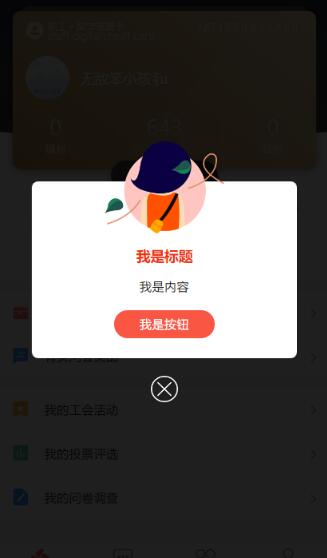本来想这一周做一个关于vuex的总结的,但是由于朋友反应说还不知道如何用vue去写一个组件,所以在此写写一篇文章来说明下如何去写vue页面或者组件。vue的核心思想就是组件,什么是组件呢?按照我的理解组件就是装配页面的零件,比如一辆车有大大小小许多零件组成,那么同样的一个页面,也是有许多组件构成的比如说头部组件 按钮组件等等,vue三大核心组件 路由 状态管理,路由控制页面的渲染,页面由组件组成,数据有vuex进行管理和改变。下面我会以一个简单的案例来说
第一步:构建一个简单的vue项目,老规矩直接在命令行输入
vue init webpack myproject cd my vue cnpm/npm install cnpm/npm run dev
执行结果如下
然后你会在8080端口看到vue的标志页面
第二步:分析目录结构 主要是组件入口app.vue和main.js
第三步:写页面
我们在app.vue下这样写
<template>
<div id="wrapper">
<router-view></router-view>
</div>
</template>
<script>
export default {
data () {
return {
}
},
components: {
}
}
</script>
在main.js中这样写
import Vue from 'vue'
import App from './App'
import Home from './pages/Home.vue'
import VueRouter from 'vue-router'
import 'bootstrap/dist/css/bootstrap.css'
Vue.use(VueRouter)
const routes = [{
path: '/',
component: Home
}]
const router = new VueRouter({
routes
})
/* eslint-disable no-new */
new Vue({
el: '#app',
router,
template: '<App/>',
components: { App }
})
main.js主要包括模块导入以及组件导入和注册,路由配置,当然路由配置可以单独写出来。
由上面的路由配置可以知道当path为‘/'时候,我们渲染到app.vue中的页面为home.vue页面,如下
<template>
<div class="jumbotron">
<h1>这个是路由对应的页面,下面就是一个表格组件</h1>
<table-com/>
</div>
</template>
<script>
import table from '../components/Hello.vue'
export default {
data () {
return {
}
},
components: {
tableCom: table
}
}
</script>
其中import table from '../components/Hello.vue'表示导入这个table组件到home.vue页面
但是只导入而没有注册这个组件是无效的,就好像定义了一个函数而没有执行。所以我们需要注册这个组件
也就是components:{tableCom: table}意思是自定义一个tableCom标签来映射这个组件,但是vue规定但标签名过长的时候,需要以分开方式去写比如tableCom 要写成table-com.
这样就完成了一个组件的导入和注册,下面我们来完成这个组件
table.vue界面如下
<template>
<div style="padding:20px;" id="app">
<div class="panel panel-primary">
<div class="panel-heading">用户管理</div>
<table class="table table-bordered table-striped text-center">
<thead>
<tr>
<th>序号</th>
<th>用户名</th>
<th>年龄</th>
<th>毕业学校</th>
<th>操作</th>
</tr>
</thead>
<tbody>
<tr v-for ="(user,index) in users">
<td>{{index+1}}</td>
<td>{{user.name}}</td>
<td>{{user.age}}</td>
<td>{{user.school}}</td>
<td><button v-on:click="remove(index)">remove</button></td>
</tr>
<tr>
<td></td>
<td><input type="text" id="name" v-model="user.name"/></td>
<td><input type="text" id="age"v-model="user.age"/></td>
<td><input type="text" id="school"v-model="user.school"/></td>
<td><button @click="insert">insert</button></td>
</tr>
</tbody>
</table>
</div>
</div>
</template>
<script>
export default {
name: 'hello',
data () {
return {
user: {'name': '', 'age': '', 'school': ''},
users: [
{'name': '李磊', 'age': '25', 'school': '洛阳理工'},
{'name': '张成', 'age': '23', 'school': '桂林电子科技'},
{'name': '炼心', 'age': '22', 'school': '江西电子科技'}
]
}
},
methods: {
insert: function () {
this.users.push(this.user)
},
remove: function (index) {
this.users.splice(index, 1)
}
}
}
</script>
<!-- Add "scoped" attribute to limit CSS to this component only -->
<style scoped>
h1, h2 {
font-weight: normal;
}
ul {
list-style-type: none;
padding: 0;
}
li {
display: inline-block;
margin: 0 10px;
}
a {
color: #42b983;
}
tr,th{
text-align:center;
}
</style>
这个组件实现了简单的增删功能,主要是对data数据的修改,我们要明白,我们平常使用的jquery只是对dom节点的操作,比如我们要改变一个数据我们就要首先获取dom然后通过jquery的方法来获取值,而vue则不然它是对data数据进行操作,数据双向绑定,数据改变则视图改变,同样视图改变则数据改变。
以上所述是小编给大家介绍的vue实现简单表格组件实例详解,希望对大家有所帮助,如果大家有任何疑问欢迎给我留言,小编会及时回复大家的,在此也非常感谢大家对网站的支持!
以上就是vue如何实现简单表格组件实例详解。时光,浓淡相宜;人心,远近相安。这就是最好的生活。更多关于vue如何实现简单表格组件实例详解请关注haodaima.com其它相关文章!





